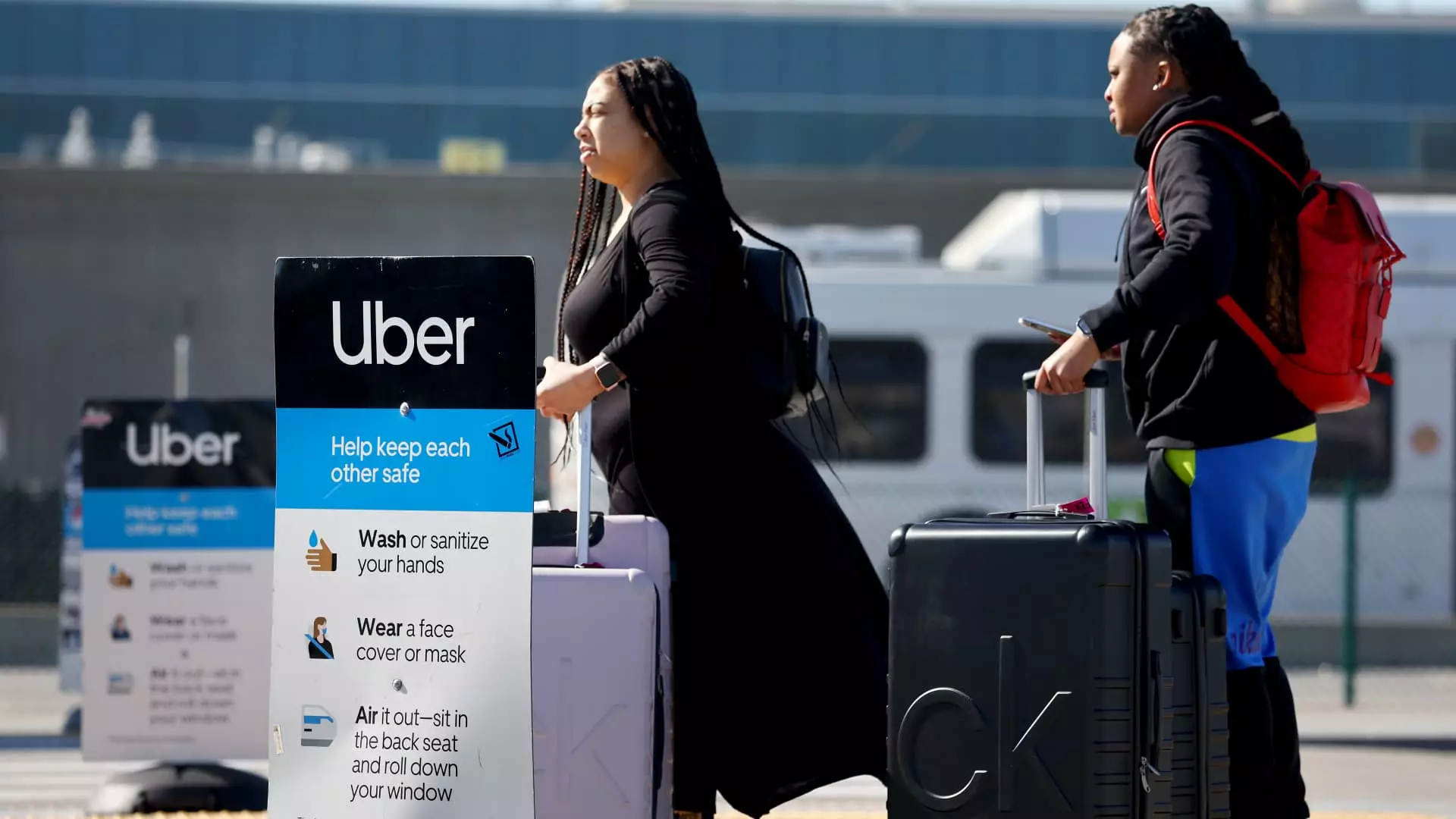The travel landscape is constantly evolving, and as companies adapt to meet the demands of modern travelers, we are witnessing a noteworthy shift in partnerships within the airline industry. In a groundbreaking announcement, Delta Air Lines has decided to partner with Uber, marking a significant transition from its previous collaboration with Lyft. This strategic move, set to take effect in the spring, has implications for both companies, as they aim to enhance customer experiences and loyalty rewards in a competitive market.
Delta’s integration of Uber into its SkyMiles loyalty program is an intriguing development that highlights the growing trend of airlines leveraging ride-hailing services to improve travel convenience. Starting this spring, customers who link their SkyMiles accounts will be able to earn miles when they use Uber. Specifically, travelers will earn one mile for every dollar spent on UberX rides at airports, two miles on premium services like Uber Comfort and Uber Black, and three miles on Uber Reserve trips. Additionally, for food deliveries through Uber Eats, members can accumulate miles on orders exceeding $40.
This partnership is not only beneficial for Delta’s frequent flyers but also serves as a lucrative incentive for Uber to expand its user base. As travel demand surges post-pandemic, such partnerships can crucially influence customer choices, making the integration seamless and beneficial for both companies.
The decision to end Delta’s eight-year association with Lyft raises questions about the effectiveness and future of loyalty programs in a digital and rapidly evolving market. While Delta has not publicly stated the reasons for this shift, one can speculate that the move aligns with broader trends in the travel and hospitality industries. Uber’s extensive reach and dominance—boasting 161 million monthly active users—positions it as a more favorable partner for an airline striving to enhance its loyalty program.
Unlike Lyft, which caters primarily to ride-hailing, Uber encompasses a wide array of services including food delivery, which can be an attractive feature for travelers looking for convenience and value. Delta’s collaboration with Uber also appears to be financially strategic; Delta’s credit card partner, American Express, already integrates with Uber, potentially leading to enhanced rewards for customers.
Even as Delta moves away from Lyft, the airline has expressed gratitude for the partnership that existed. According to Delta, customers who have linked their Lyft accounts can continue to earn miles until April 7, with direct communications forthcoming regarding the transition. Lyft recounted its journey with Delta and stressed its commitment to exploring new partnerships that align with its vision of customer satisfaction.
This farewell is significant not only for Delta and Lyft but also for the larger context of travel partnerships. Changes like this indicate how swiftly companies can pivot and seek alignment with big players in the market to maximize benefits for their loyal clientele. Lyft aims to nurture new alliances with brands that resonate with its customer base, such as Alaska Airlines and Hilton, illustrating its ongoing commitment to innovation in customer experience.
The announcement also comes amidst a backdrop of advanced technological integration in the travel sector. At the Consumer Electronics Show (CES) in Las Vegas, Delta introduced enhancements to its customer experience, including an AI-powered assistant designed to simplify and enrich the travel journey. As airlines, ride-hailing services, and technology converge, we are witnessing a shift towards an interconnected ecosystem that prioritizes convenience and user engagement.
Delta’s partnership with Uber reflects this trend, merging the realms of air travel and ground transportation seamlessly. With travelers increasingly prioritizing efficiency and a streamlined experience, such innovations signify a proactive response to emerging consumer expectations rather than a passive one.
As Delta Air Lines prepares to unveil its new partnership with Uber, the airline industry stands poised at the brink of transformation. The collaboration reflects an acute understanding of contemporary consumer behavior and technological integration—a dual focus that will undoubtedly shape the future of loyalty programs and travel experiences alike. As both companies gear up to embrace this exciting new chapter, the shift highlights the necessity for brands to stay agile and responsive in a world where consumer preferences are constantly in flux.


Leave a Reply